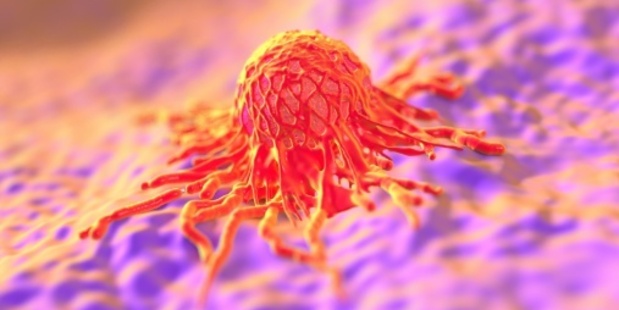Breast cancer is being dreaded and the scourge is on the increase. The detection of breast cancer on any woman is akin to pronouncement of death sentence. Most women live in constant fear of this menace, I included, and this is because the percentage of survival is low.
Within the past four years I have lost friends and relations to breast cancer, I was so griped by fear that I check my breasts hourly. However, last year I became directly involved with caring for a cancer patient when my mother-in-law was diagnosed with breast cancer. The task of taking care of her was unavoidable; we all have to take our turn as she was far from home. The experience lessened my fear and made me more informed.
We thank God for her survival, it wasn’t easy but with unshaken faith in God, she’s alive to tell the story. And also for me, it reduced the fear of hopelessness about the disease, if she could survive it at her age, then there is hope for others, once we denude ourselves of fear.
Information is very necessary, the patient and relations need to be well informed about the treatment’s cause and effect, for proper management. I discovered one of the reasons most cancer patient in Nigeria don’t survive is lack of adequate information on how to manage the patient as well as the side effects of cancer treatment.
I am writing this based on my mother-in-law’s treatment and the experience I gained from how we handled her. Her first chemotherapy treatment was nerve wrenching for her as well as those taking care of her. Though we were told what to expect, it wasn’t easy managing it that first time, however, we learnt and was able to handle subsequent ones.
CHEMOTHERAPY: it’s a big word that induces fear in cancer patients and their families with good reason too. However, chemo as I have come to discover is not the problem but the side effect and the management of it, is the big issue here.
Chemotherapy is a group of drugs giving orally or intravenously to cancer patients to disrupt the way cancer cells grow and divide. Also it is meant to shrink large cancer cells to a size safe enough to be removed surgically. Incidentally, these drugs also affect normal cells in the body.
The cells affected by chemo treatment are those in the bone marrow, the lining of the mouth and intestines, the hair follicles, reduction in white blood cell counts and red blood cell counts. These give rise to lots of changes in the body which results in the several side effects the patient suffers.
SIDE EFFECTS OF CHEMOTHERAPY
Mouth sore
Loss of appetite
Nausea and vomiting
Increased chance of infection(from low white blood cell counts)
Easy bruising and bleeding(from low blood platelet counts)
Diarrhea
Hair loss.
No drugs are given for these excerpts on severe cases.
The chemo drugs were given in form of drip (infusion) which lasted for a few hours, and then three weeks rest period would be given to the patient in which she was expected to rebuild her blood cells counts. The side effects may last four to seven days at most. During this period what the patient eats is of paramount importance, because there will be a blood test before the next session of chemo to make sure the white blood cells have recovered if not chemo will not be administered.
DIET FOR CANCER PATIENT: the challenge was trying to assemble and prepare the right food with all the right nutrients to boost her blood count as well as manage the side effects using our own local foods. We went into research, the internet did not offer much in terms of our local food, and so we made use of our initiative. When the blood test before the second chemo was taken, she came up as the patient with the highest blood counts and the doctor were impressed, so we knew we’re on the right track and so kept to the diet until the end of her treatments.
THE FOODS
SNAILS: Snails contains cancer fighting properties and also help in boosting the immune system, Snails also are a great source of iron for healthy red blood cells. It also provides other essential minerals such as potassium, phosphorus, minerals and vitamin B-12 and magnesium.
VEGETABLES: We used ugu, i.e. Pumpkin leaf and Scent leaf for mineral and vitamins, the scent leaf for its antibiotic properties. These we pound to pulp before we add to every food she eats like beans and unripe plantain, as well as make soup with snail and dried fish.
CRAYFISH AND SHRIMPS: added in every of her meals. The crayfish is pounded, but the shrimps are cut into tiny chewable bits.
BEANS AND UNRIPE PLANTAIN. Cooked with enough vegetables, crayfish and shrimps. At times only beans, or sometimes mixed with unripe plantain or unripe plantain alone with vegetables pounded for easy digestion.
PAP (akamu, ogi) with soya beans powder, she takes it often especially when her appetite is low, it keeps fluid in her system, as well as fight constipation.
FRUITS: fruits like apple, water melon, cucumber and pawpaw are cut in small chunks and use to make fruit salad which she takes daily. It helps in constipation or diarrhea. She might have one or the other at a time.
All in all avoid greasy fried foods. Avoid too much red oil and vegetable oil when preparing meals for a chemo patient. Avoid too much salt, and use of seasonings and spices. Also avoid giving them acidic foods. Every food has to be prepared fresh to derive the nutritional value of it. She ate rice and yam as well even fufu, after her fourth chemo, but it has to go with lots of vegetable.
This is not exhaustive, but that's what we used and it worked for us and to God be the glory.



